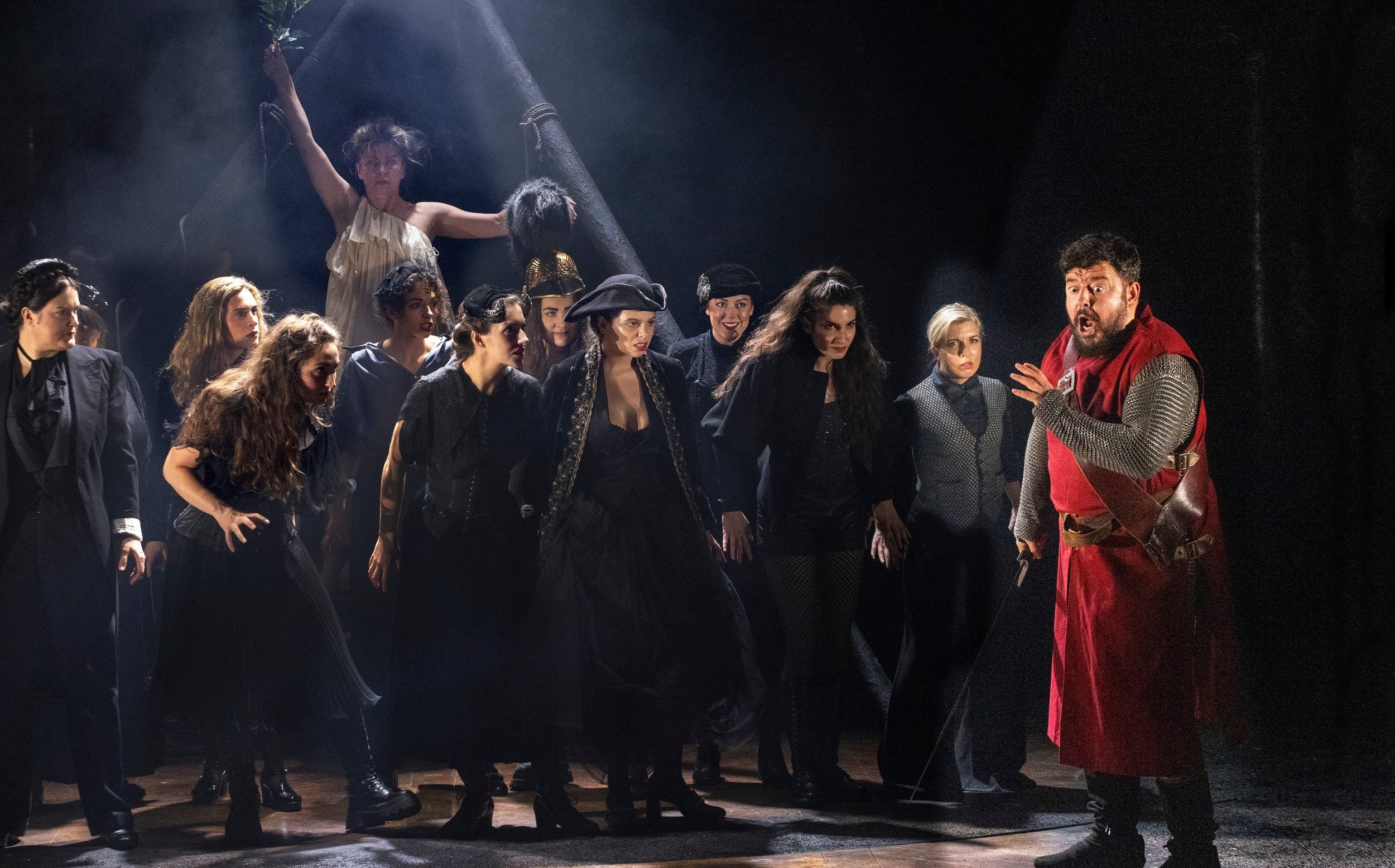Benjamin Britten and his partner Peter Pears were on holiday in California when they came across the poem by George Crabbe called “The Borough”. Britten, as a Suffolk native, strongly identified with this tragic tale of the Aldeburgh fisherman Peter Grimes. On his return to England in 1942, Britten asked Montagu Slater to write a libretto for the opera to be named Peter Grimes. He wanted it to reflect “The struggle of the individual against the masses - the more vicious the society, the more vicious the individual”. The work is regarded as a powerful statement on homosexual oppression - homosexuality was still a criminal offence in 1945. The world premiere opened at Sadler’s Wells in the summer of 1945 with Peter Pears in the title role and it was met with huge public and critical acclaim.
There have been many great productions and interpretations over the years. Perhaps the last most memorable one was David Alden’s production at the English National Opera which won the Olivier Awards in 2009. In this new 2022 production, the director Deborah Warner gives us a Peter Grimes of the highest quality. The intensity of the work is intellectually purveyed with every thought, movement, action and characterisation thrillingly communicated. At its heart is “The Borough”, a modern-day depressed coastal town with a community somewhat left behind, as well as its many boarded-up shop fronts. In Peter Grimes, magnificently sung by Allan Clayton, the community find their perfect scapegoat. Warner brilliantly places the prologue drama not in a courtroom, but on the beach with the lustre and thunder of John Tomlinson’s magistrate on full show. Even at this stage, Grimes foreshadows his eventual suicide with a floating body, being his first dead apprentice, hauntingly swimming in the sea above him.
Warner’s characterization runs deep throughout this opera, and it is reflected in the many wonderful performances. John Graham-Hall is the biblical Bob Boles, with a Bible always in hand, praying together with the busybody Mrs Sedley sung by Rosie Aldridge. There is the unyielding Auntie of Catherine Wyn-Rogers and the quacky drug dealing apothecary Ned Keene sung by the baritone Jacques Imbrailo. However, it is the Captain Balstrode of the intensely dramatic Bryn Terfel and the light but sensual voice of Maria Bengtsson as Ellen Orford, who both shine as real carers for the peculiarities of Grimes himself.
Allan Clayton’s Grimes is a tour de force, a defining performance of the role. His shattering power is interspersed with heart-breaking lyrical refinement in a role of unyielding intensity.
And it is all brought together in a performance of sophisticated, sometimes overwhelming sound, by the brilliant conductor Mark Elder, who produces orchestral playing together with choral sound that crackles with electricity, leaving us exhausted at the end. The Act 2 female quartet - with a nod to Richard Strauss and Rosenkavalier - was full of textural detail and magnetic in its interpretation. Elder manages to get to the core of the score's beauty in a way like no other. When the community goes in search of Grimes, in the wrongful belief that he has murdered his second apprentice, Warner’s portrayal of the violence to Ellen and the manhunt of Grimes, leaves us chilled to the core. Warner uses a Guy Fawkes effigy during the singing “Him who despises us, we’ll destroy”. The bear-chested skinheads and the mob, kick and beat the effigy as they travel to Grime’s coastal cottage to witness his eventual death.
This full-force performance that will be long remembered was both thrilling and unsettling at the same time. Perhaps the raging storm could have been more vividly reflected, but then the brilliant chorus and its rage made up for this in spades.
Beg, steal or borrow for a ticket!



